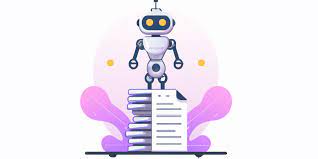Introduction
Artificial Intelligence (AI) has emerged as a transformative force in various industries, including content creation. This article explores the definition of AI in content creation, its impact on the creative process, and the diverse ways in which AI is utilized to generate, enhance, and personalize content.
AI-Powered Content Generation
AI tools for content creation have become increasingly sophisticated, enabling the generation of diverse content types. From text to visual elements, AI algorithms are capable of creating content across multiple media platforms. This shift has redefined the possibilities of what can be achieved in the creative realm.
Enhancing Creativity with AI
AI plays a role not only in generating content but also in enhancing the creativity of human creators. By providing inspiration, generating ideas, and offering new perspectives, AI becomes a collaborative partner in the creative process. The synergy between AI and human creativity holds the potential for innovative and unique outcomes.
Automated Writing and Copywriting
In the realm of written content, AI has been employed for automated writing and copywriting. It can generate articles, product descriptions, and marketing copy, streamlining the content creation process. However, the integration of AI in writing raises considerations regarding the balance between efficiency and maintaining a human touch in the content.
AI-Driven Visual Content Creation
Visual content creation, including images, videos, and graphics, benefits from AI applications. AI algorithms can generate visual elements, assist in design processes, and even create art. This not only expedites content creation but also opens up new avenues for creative expression in the visual arts.
Personalization and Audience Engagement
One of the significant contributions of AI to content creation is in the realm of personalization. AI analyzes user data and behavior to tailor content based on individual preferences. This personalization enhances audience engagement, providing users with content that aligns with their interests and preferences.
Content Editing and Optimization
AI extends its role to content editing and optimization. Algorithms can proofread, edit, and enhance written content for grammar, style, and clarity. Additionally, AI contributes to optimizing content for search engines (SEO) and improving the overall user experience.
Challenges and Ethical Considerations
While AI brings efficiency to content creation, ethical concerns arise. Questions about transparency, bias in AI algorithms, and the potential impact on authenticity and creativity need careful consideration. Striking a balance between utilizing AI assistance and maintaining the integrity of human creativity is essential.
Integration of AI in Content Marketing
In content marketing, AI plays a pivotal role in refining strategies. It analyzes data, identifies trends, and provides insights into audience behavior. This data-driven approach helps marketers tailor their content strategies for maximum impact and relevance.
The Future of AI in Content Creation
The future of AI in content creation holds exciting possibilities. Anticipated advancements include even more sophisticated AI algorithms, seamless integration with creative workflows, and the evolution of AI as a creative collaborator rather than just a tool.
Conclusion
In conclusion, AI has become a significant player in the realm of content creation, offering tools and capabilities that redefine creative processes. The collaboration between AI and human creativity presents a dynamic landscape for innovation. As we navigate this transformative era, it is crucial to approach AI integration thoughtfully, considering both its potential and the ethical implications. The evolving relationship between AI and human creativity promises a future where technology enhances our creative endeavors while preserving the authenticity and uniqueness of human expression.
